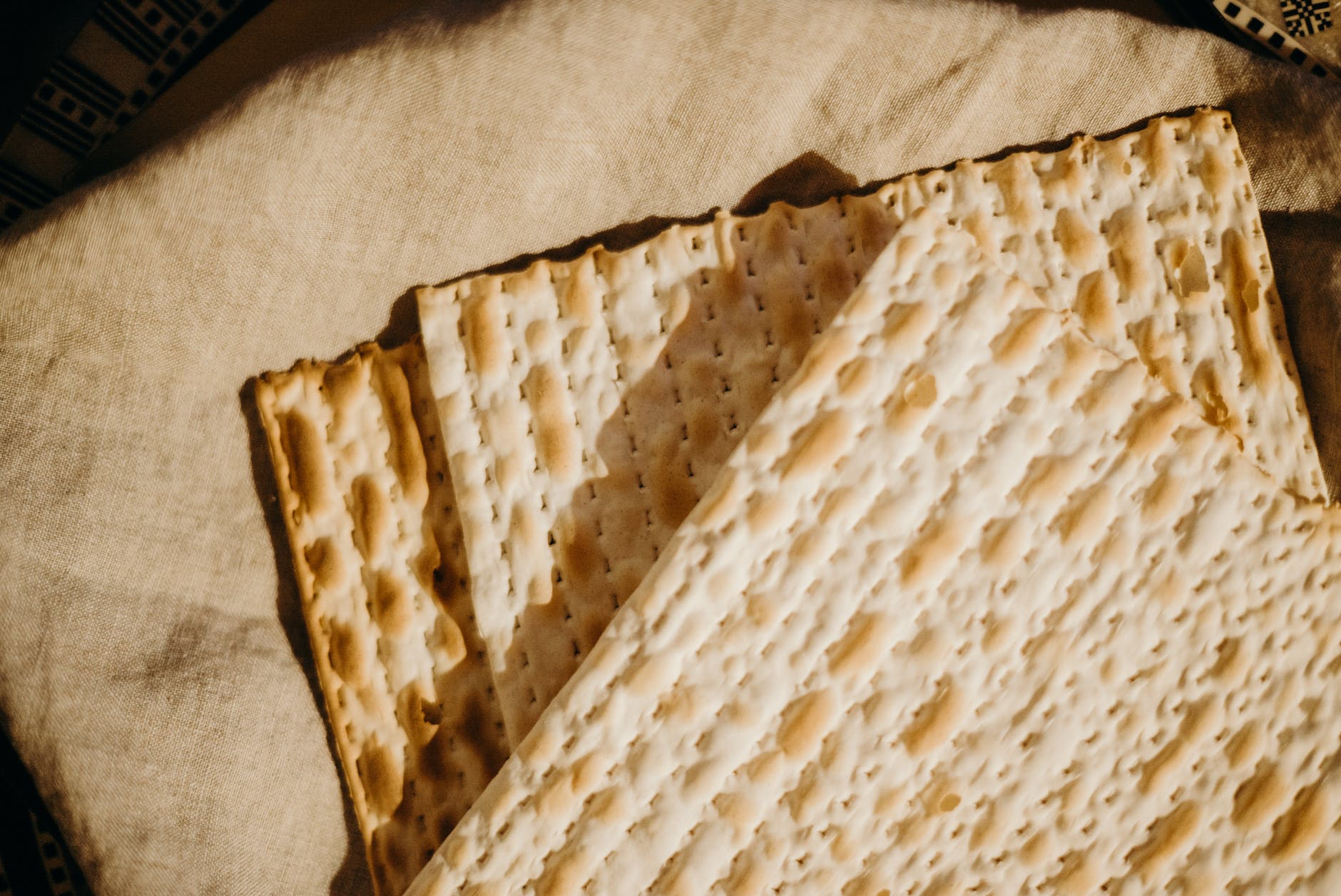Be a Growing Matzo
The Gemara, Pesachim 116b, teaches us that every generation should view itself as if it was the generation that left Mitzrayim. If we consider this in light of the bnei yisroel’s first Pesach, we have an interesting situation. HaShem instructs klal yisroel to take hyssop, dip it in blood, and paint the doorways of our houses as a marker for safety. Let’s pick up from there…
[N]one of you shall go out from the door of this house until the morning…you shall observe this thing for an ordinance to you and your sons forever.
Shemos 12:22
As the Bobover Ruv points out, although the Ohr HaChaim HaKadosh indicates this looks to be a mitzvah to remain indoors on seder night every generation, no one has kept this mitzvah. That would certainly making hosting seder a lot more awkward, as well as being a guest if you were makpid on it but your host wasn’t…
So what’s the point of a mitzvah that no one does? Turns out, the text itself isn’t so pashut. The Ruv clarifies the matter for us, illuminating the text. The outside is the public domain, under the ownership of the sitra achra, the “Dark Side,” which seeks to subvert and damage yiddishe neshamos. The house, the Reshus HaYachid, is the domain of HaShem, where Kedusha reigns and evil has no place.
This was a forewarning of galus. In our exiled lands, we are exposed to every temptation and difficulty. On seder night, HaShem brings us to the 50th level, the level of Kabbalos HaTorah. That’s why we don’t count Sefirah that night. Then, we are dropped back at the beginning, where we are exposed to the outer realm, and told to do the inner work to bring us to that point. As things generally go, what we toil for we prize most. HaShem is using this psychological condition to the benefit of our ruchniyus, putting us in position to toil for the growth so that we prize said growth.
That said, as we work through the growth, we have a careful line to walk. On one hand, we are to be like matzo – empty of the chometz of pride, pure potential to be used only as an eved HaShem. On the other hand, we need to believe in ourselves and can’t view ourselves as nothing. This, therefore, is the challenge – to be batel but nonetheless rui. We need to maintain a humble pride, as the yetzer hara will use a false sense of humility to destroy us. Our service, while not of need to HaShem, has immense value to HaShem. Chazal state we need to have a sense of pride.
A Torah scholar must have an eighth of an eighth of arrogance.
Sotah 5a
The Ruv brings that this pride is what is needed to give us motivation to serve HaShem. We see that our avodah is precious to HaShem. Our sense of pride, according to the Rama in his commentary of the first paragraph of the Shulchan Aruch, needs to be strong so we are not affected by the mockery of others in our service to HaKadosh Baruch Hu.
The Ruv brings a story from sefer Kevonas Halev from the Krasna Rav regarding a disciple of the Noda B’Yehudah. His student veered off the path of Torah and became a priest. Troubled by this, he met with the student to find out what happened. The Rav had poskened on a situation that the student did not adhere to, and the yetzer hara seized that moment to make the student feel worthless and like a failure.
When we make a mistake, it’s easy to lean into that failure and give up hope. It’s easy to self-criticize too much and beat oneself down. Yet, at the same time, we have the model of the matzo. For those who have had the opportunity to make matzo, it’s no easy feat and requires constant guard.
We need to believe in ourselves, and see the opportunities for growth, one step at a time. That’s why Sefiras HaOmer is counting one day at a time. Each day, we can take a moment to reflect on where we stand, Bein Adam HaMakom, Bein Adam L’Chaveiro, and Bein Adam L’Atzmo.
We build ourselves, consistently, one small step at a time. This season of counting, don’t view yourself as nothing. After all, by Seder night, the Matzo is the prized possession. View yourself as potential and room to grow, and use this as the shlissel (key) to your success.

